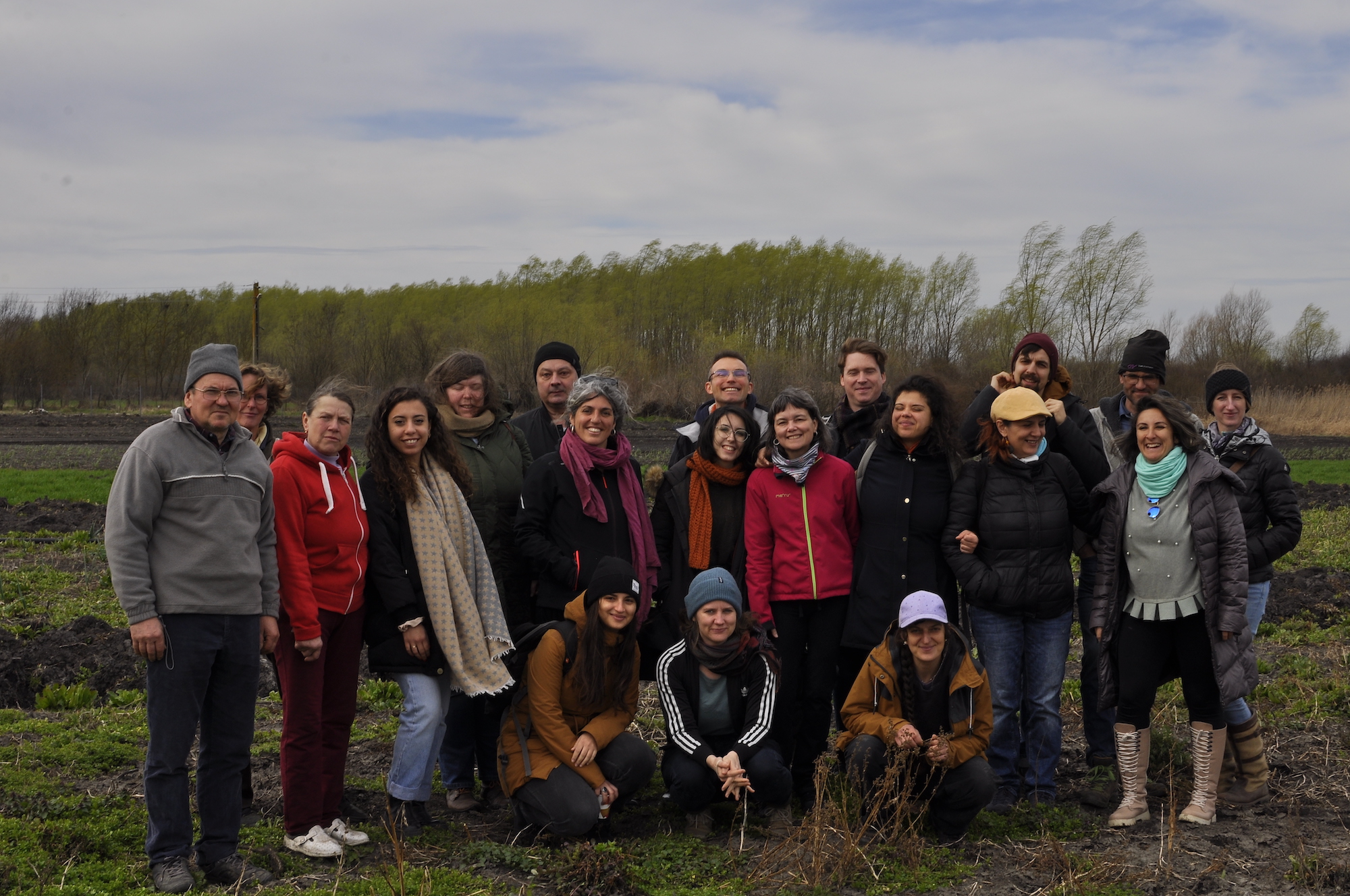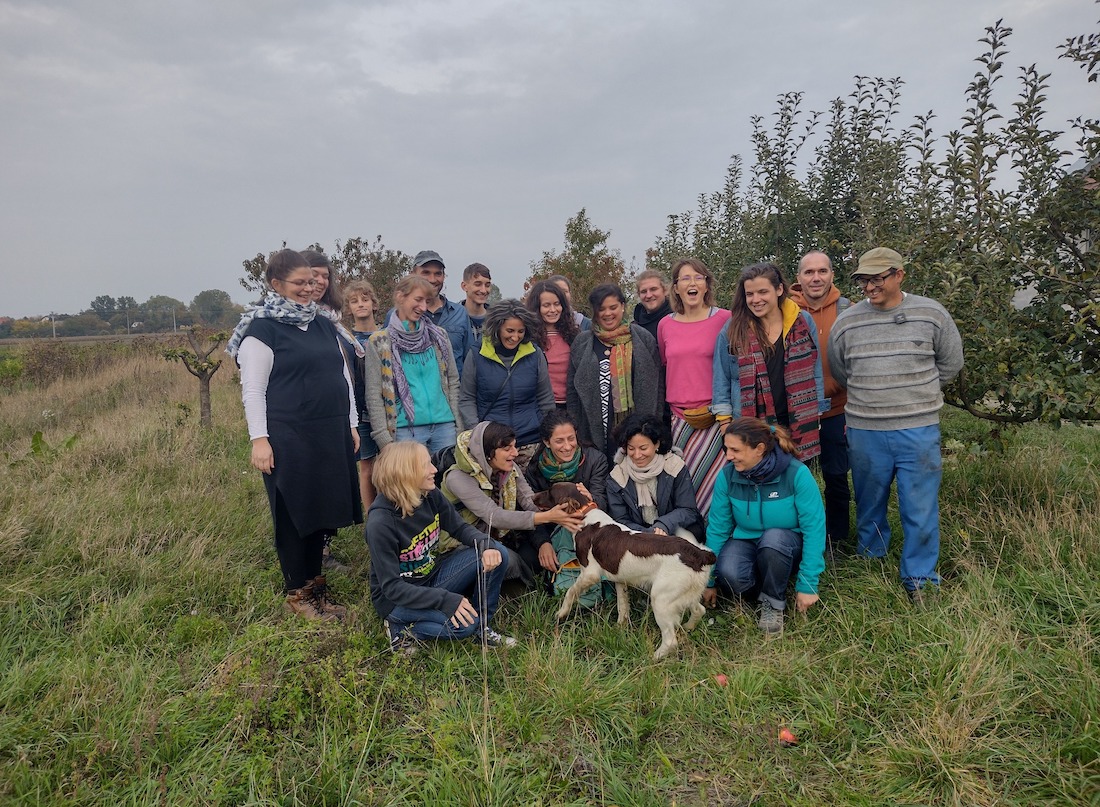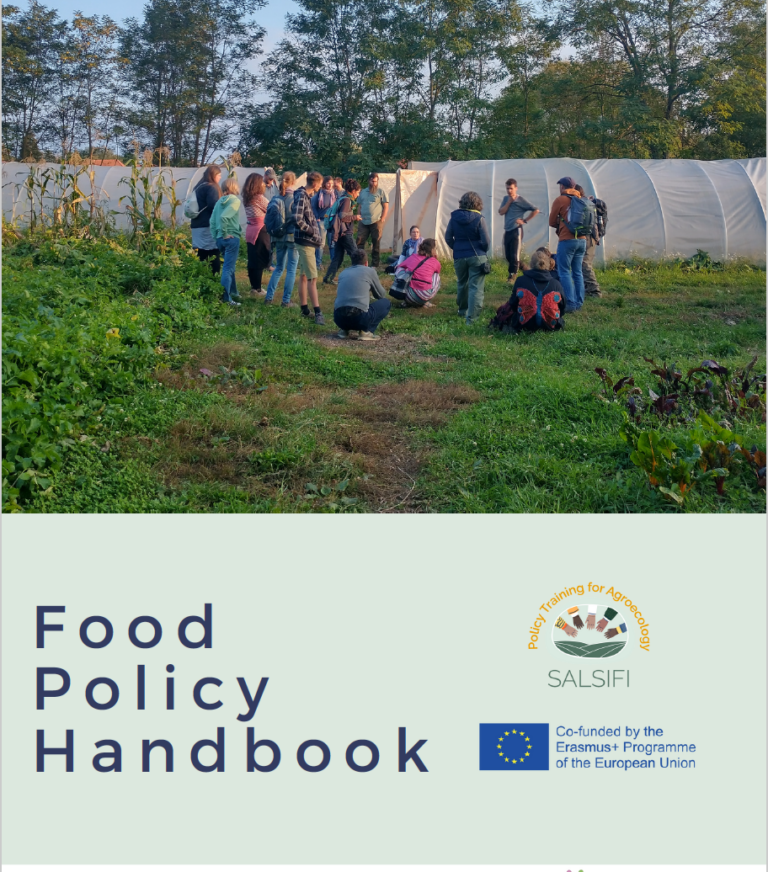The Food Policy Handbook is a comprehensive guide to sustainable food policies at local, national, European, and Eastern European levels. It draws on real-life examples from various countries where the CSA/LSPA (Community Supported Agriculture / Local Solidarity Partnerships in Agriculture) movement has been a driving force for positive change.

The handbook delves into the world of policymaking, sharing hands-on experiences of how CSA and LSPA have played pivotal roles in shaping these policies. The focus is on providing concrete examples and actionable insights to empower food communities, comprising farmers, future farmers, rural development organisations, consumers’ groups, CSA networks, local authorities’ staff, environmental groups, and more.
This comprehensive resource has been a collaborative effort, brought together by dedicated project partners from various countries, including Belgium, the Czech Republic, France, Germany, Hungary, Italy, Romania, Spain, and URGENCI, which has contributed to covering additional countries.

Whether you are a farmer seeking sustainable solutions, a policymaker striving for positive change, a consumer looking to make informed choices, or an organisation advocating for a healthier and more equitable food system, this handbook is tailored to meet your needs. Peruse the Handbook and delve into knowledge-sharing and empowerment, as we work together to create a more sustainable and resilient food future for all.
Here are some of the key takeaways from the handbook:
- CSA and LSPA are powerful models for sustainable food systems. They can help to build stronger local food economies, support small-scale farmers, and provide consumers with access to fresh, healthy food.
- CSA and LSPA can play a key role in shaping food policy. By working with policymakers, CSA and LSPA organisations can advocate for policies that support sustainable food production and consumption.
- The Food Policy Handbook is a valuable resource for anyone who is interested in creating a more sustainable and resilient food future. It provides a wealth of information on CSA, LSPA, and food policy, and it offers concrete examples of how these models can be successful.

The European Commission’s support for the production of this publication does not constitute an endorsement of thecontents, which reflect the views only of the authors, and the Commission cannot be held responsible for any use whichmay be made of the information contained therein.

